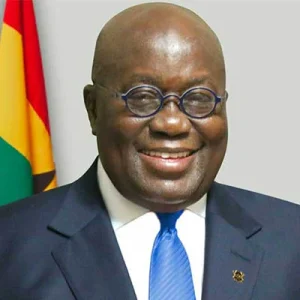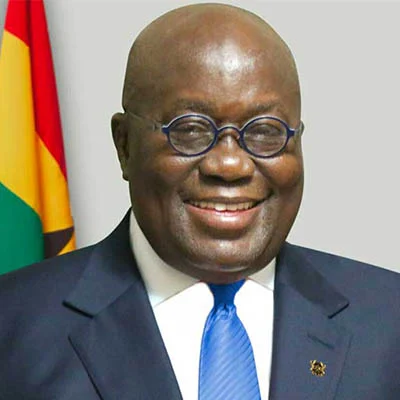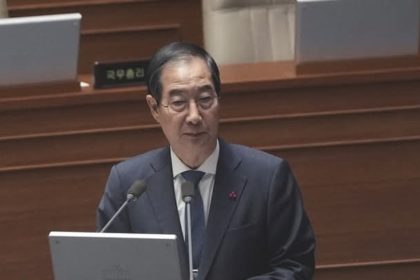
In a historic move aimed at fostering African unity and economic integration, Ghana’s outgoing President Nana Akufo-Addo has declared visa-free travel for all African passport holders.
The announcement, made during his final State of the Nation Address on January 3, 2025, signifies Ghana’s commitment to the ideals of the African Continental Free Trade Area (AfCFTA) and the African Union’s Agenda 2063.
“I am proud to have approved visa-free travel to Ghana for all African passport holders, with effect from the beginning of this year,” Akufo-Addo stated in Parliament. The policy underscores Ghana’s role as a leader in promoting African solidarity and aligns with the broader goal of creating a unified, connected, and economically integrated continent.
This landmark decision places Ghana alongside countries like Rwanda, Seychelles, Gambia, and Benin, which already grant visa-free entry to African travelers. Previously, Ghana had offered visa-free access to citizens of 26 African nations and visas on arrival for 25 others. With this expansion, only Morocco and Eritrea remain as African countries requiring pre-entry visas for Ghanaians.
Akufo-Addo highlighted the historical and cultural significance of the decision, referencing Ghana’s efforts to bolster its global reputation through initiatives such as the 2019 *Year of Return*. That campaign, commemorating 400 years since the transatlantic slave trade, drew thousands of visitors from the African diaspora and strengthened Ghana’s status as a cultural and tourism hub. Celebrities and influential figures participated, and some even acquired Ghanaian citizenship.
“This is the logical next step to AfCFTA and the workings of the largest trading bloc in the world,” the President said. He emphasized the policy’s alignment with the African Union’s Agenda 2063, a 50-year development framework that envisions a connected and integrated continent.
Akufo-Addo used his final address to reflect on his administration’s accomplishments, particularly in economic development. He pointed to an increase in Ghana’s gross international reserves from $6.2 billion in 2017 to $8 billion at the end of 2024. He also noted a return to pre-pandemic economic growth, with a projected GDP growth rate of 6.3% for 2025.
“Economic growth has returned to the pre-Covid trajectory,” Akufo-Addo said. “I leave behind a Ghana that is thriving, one that has navigated significant global challenges with remarkable tenacity, whose economy is steadily rebounding, and whose institutions are operating effectively.”
Despite these achievements, Akufo-Addo’s tenure has not been without challenges. Since 2022, Ghana has grappled with one of its worst economic crises in decades, leading to its entry into a $3-billion International Monetary Fund (IMF) relief program. High inflation, a depreciating cedi, and a mounting debt burden tested the resilience of his administration.
However, Akufo-Addo’s leadership has been credited with maintaining Ghana’s reputation as one of Africa’s most stable democracies. As he prepares to step down on January 6, 2025, he hands over power to John Mahama, who won the December election. This peaceful transition underscores Ghana’s commitment to democratic principles and political stability.
The President’s announcement of visa-free travel is widely seen as a capstone to his legacy. It not only reinforces Ghana’s role as a continental leader but also serves as a practical step toward the realization of AfCFTA’s goals. The trade bloc, headquartered in Accra, seeks to create a single market for goods and services across Africa, boosting intra-African trade and fostering economic cooperation.
Observers have praised the move as a bold and forward-thinking policy that could inspire other African nations to adopt similar measures. By removing barriers to travel, the policy is expected to enhance trade, tourism, and cultural exchange, driving the continent closer to the vision of integration championed by pan-African leaders.
Akufo-Addo’s address also came against the backdrop of significant geopolitical shifts in West Africa. At the December 2024 Economic Community of West African States (ECOWAS) summit, Ghana played a pivotal role in discussions surrounding Burkina Faso, Mali, and Niger’s decision to quit the bloc. The countries had accused ECOWAS of being subservient to former colonial powers, highlighting ongoing tensions over sovereignty and regional cooperation.
The President’s leadership during these turbulent times has drawn admiration from many quarters. As he prepares to leave office, Akufo-Addo’s emphasis on unity, progress, and resilience resonates as a message of hope for Ghana and Africa at large.
While challenges remain, including the implementation of the visa-free policy and ongoing economic recovery efforts, Akufo-Addo’s final act as President symbolizes a forward-looking vision for Ghana’s role in Africa’s future. His tenure may be remembered not just for its achievements, but also for its unwavering commitment to the principles of pan-Africanism and international cooperation.
As the nation prepares for a new chapter under President-elect John Mahama, the legacy of Nana Akufo-Addo serves as a testament to the enduring values of leadership, vision, and dedication to the collective aspirations of a continent on the rise.




